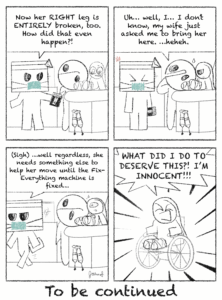It was recently brought to my attention that a friend of mine was diagnosed with precancerous cells and tested positive for HPV. Naturally, hearing the word “cancerous” made me forget about the “pre” part, and immediately caused me to worry and jump to serious conclusions about her health without understanding any of the related facts. What does it really mean for someone to have precancerous cells? Does this guarantee that they’ll develop cancer in the future, or can such cells be harmless? Besides being able to perfectly recite the “one less” Gardasil jingle, what do us sexually active, young adults know about HPV?
Although it’s hard to believe, nearly all sexually active men and women have potential to contract human papillomavirus infection, commonly known as HPV, at some point in their lives. Yes, this means you too are, unfortunately, at risk. However, despite knowing this, many people continue to believe that acquiring something like this is not written in the stars for them, and that they are somehow exempt from contracting such infections and diseases. The problem with having this type of mentality is that HPV (and many other STDs/STIs) often go completely undetected, given the lack of physical symptoms that are common for many strains of the infection. Now, you might be wondering how much harm it could really cause if there are virtually no symptoms. That, coupled with knowing HPV typically goes away on its own for males over time, means you’re probably even more inclined to downplay the infection. But with so many unknowingly affected males walking around, many women thus unknowingly contract the infection, and for them the complications associated with HPV are not as simple.
In women, an HPV infection can lead to cervical cancer if left unnoticed and untreated. Even more frightening are the results of a new study published in the journal “Oncology” that suggests HPV can lead to head and neck cancer. Luckily, women can receive annual internal exams from a gynecologist, which will reveal any abnormalities, such as HPV-related precancerous cells. While the solution seems easy, the problem is that many women, especially women in college, do not follow through with their annual gynecological exams. By putting off the annual exams, females risk the chance of having an untreated STI or STD and are at an even greater risk of developing cancer if HPV is present.
As teenagers, many women are given vaccinations to protect against HPV. While vaccinations such as Gardasil and Ceravix protect females from getting HPV, they only protect against the strains that are most likely to cause cervical cancer. The HPV strains that are not protected against by the vaccine may not be as likely to cause cancer, but may have other physical symptoms. Such symptoms include genital warts, which eventually go dormant, but can flare up during times of stress, and an increased risk of getting other STIs or STDs. Practicing safe sex and taking good care of yourself overall are wonderful preventative measures, but are not substitutes for routine physical examinations.
So remember, sex is cleaner with a packaged wiener.



